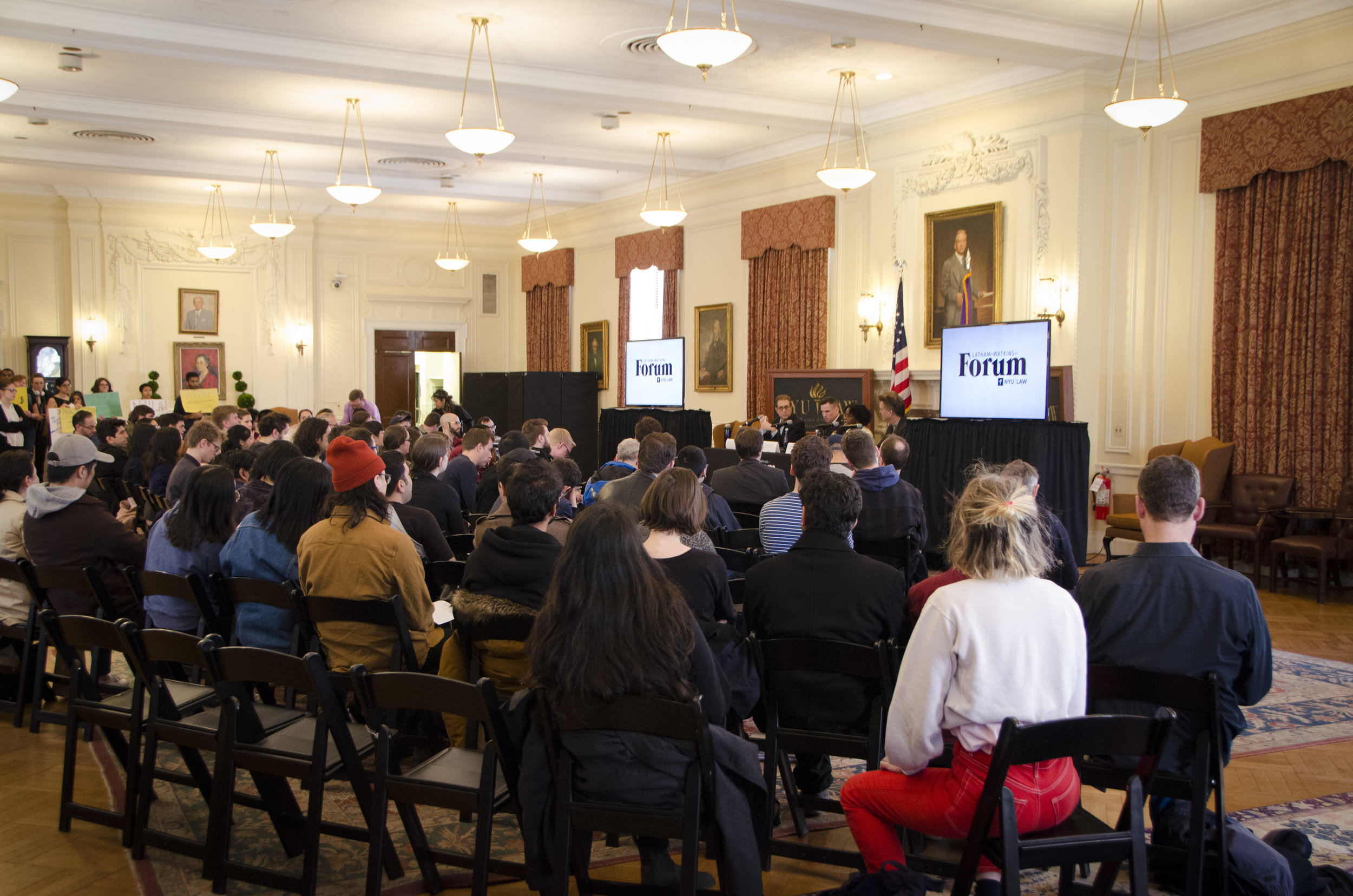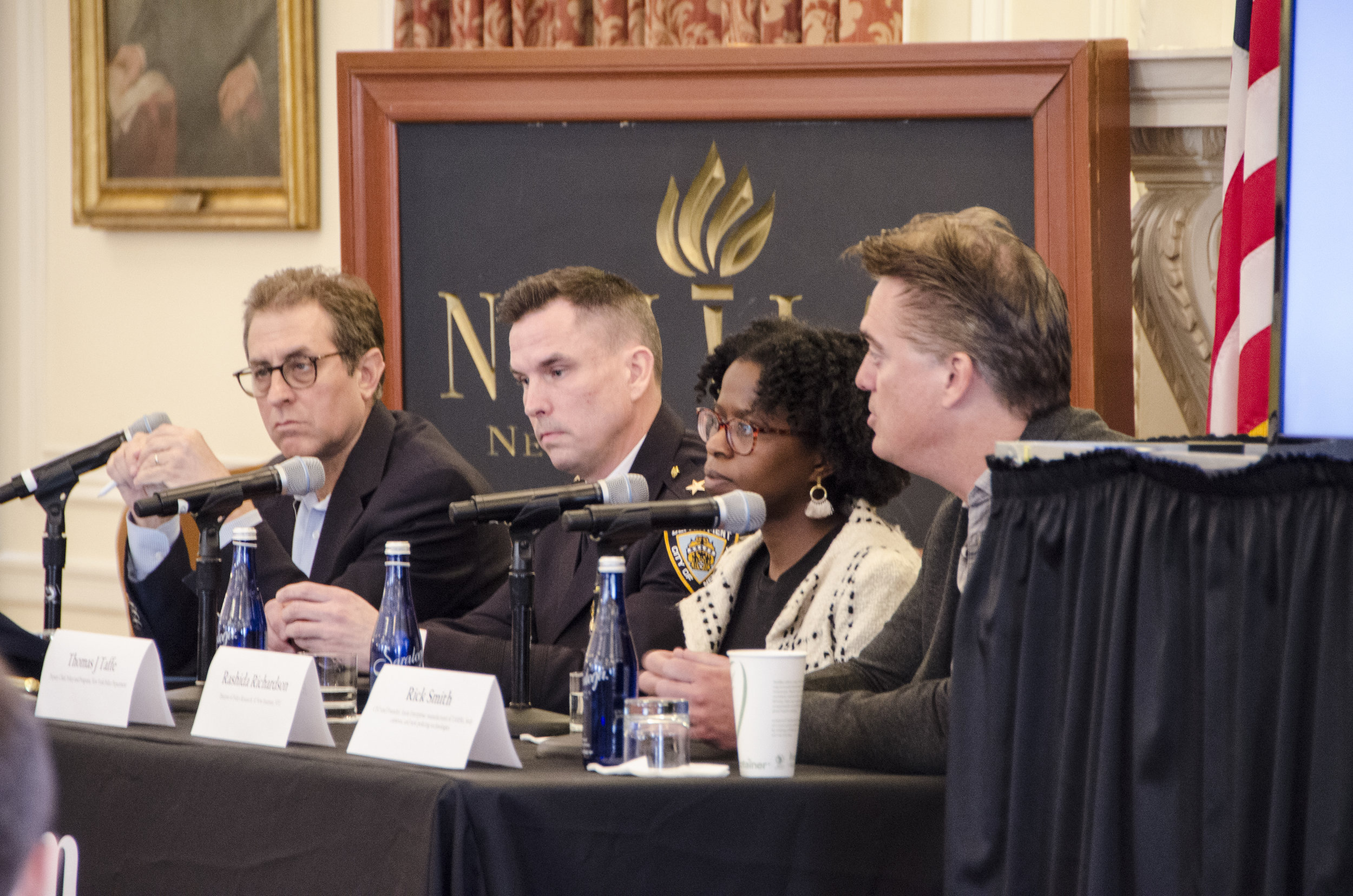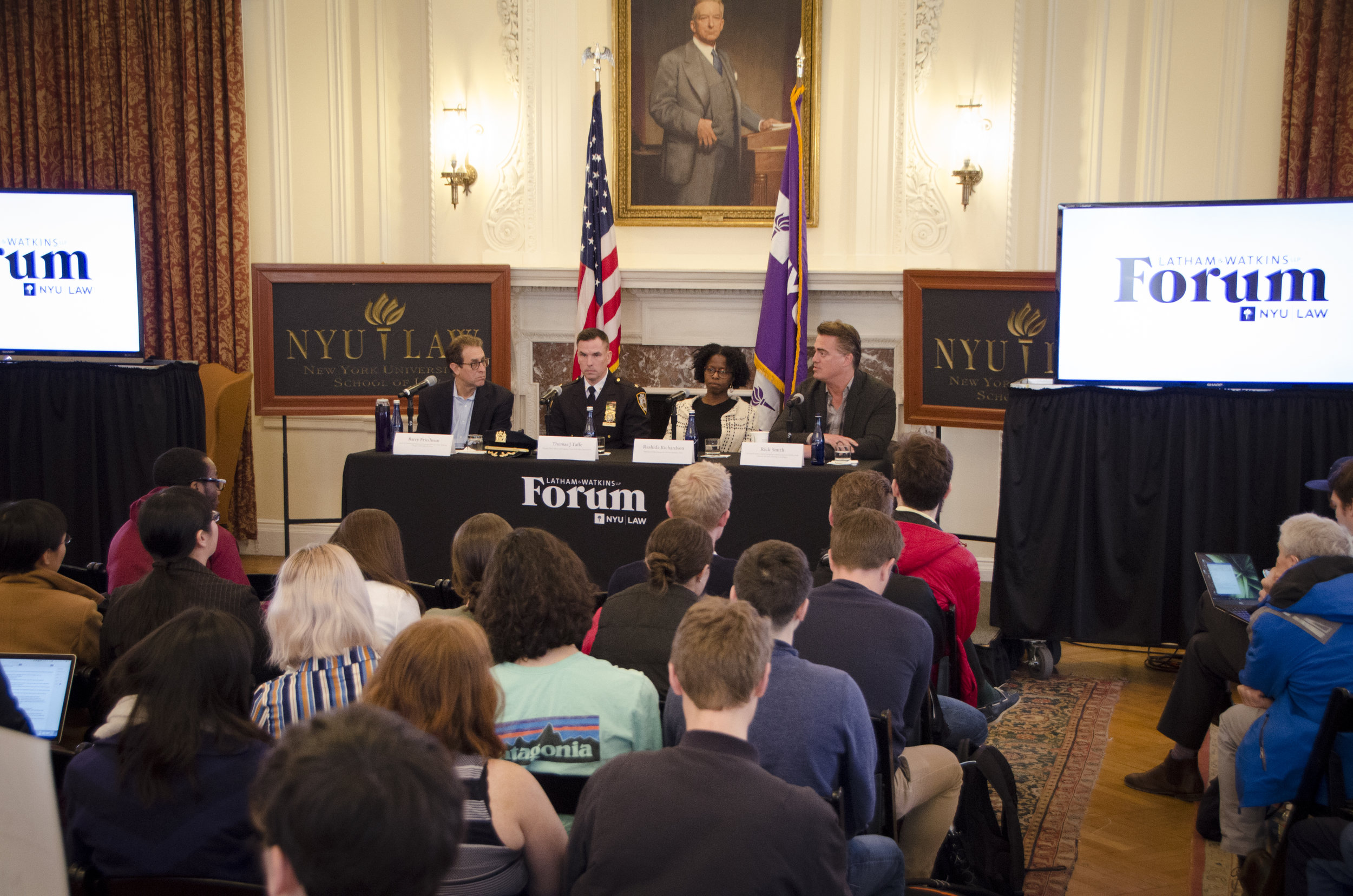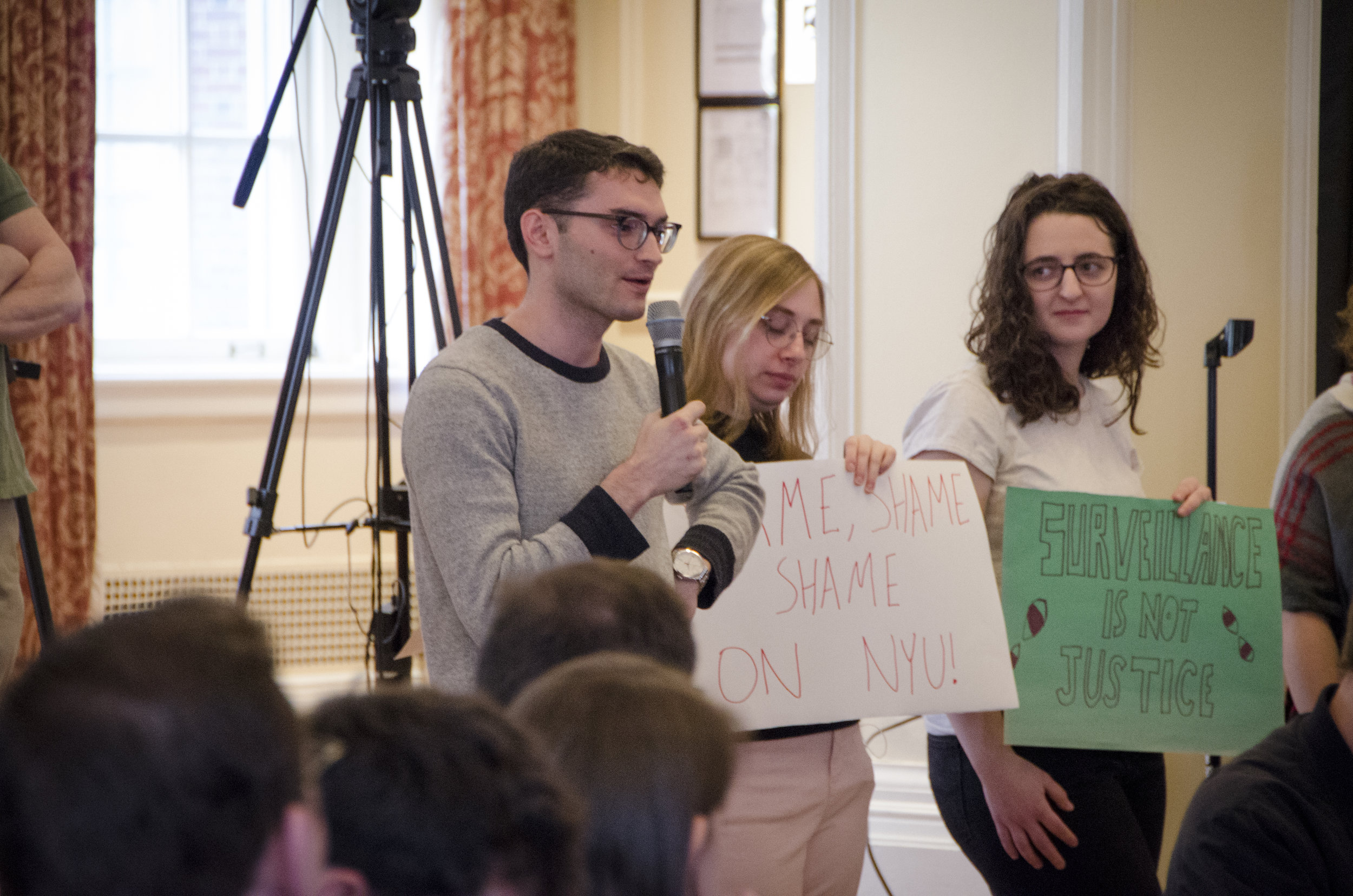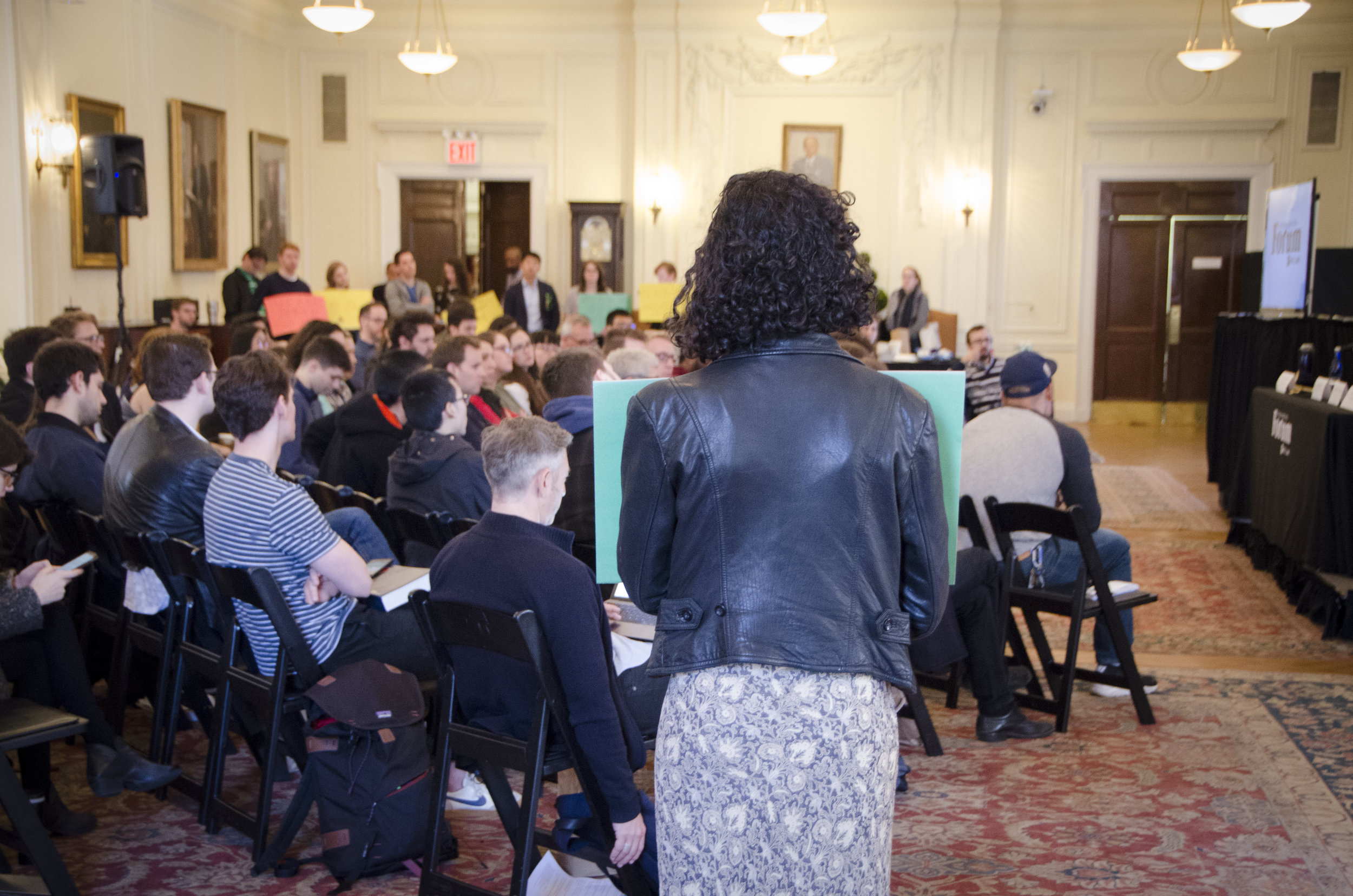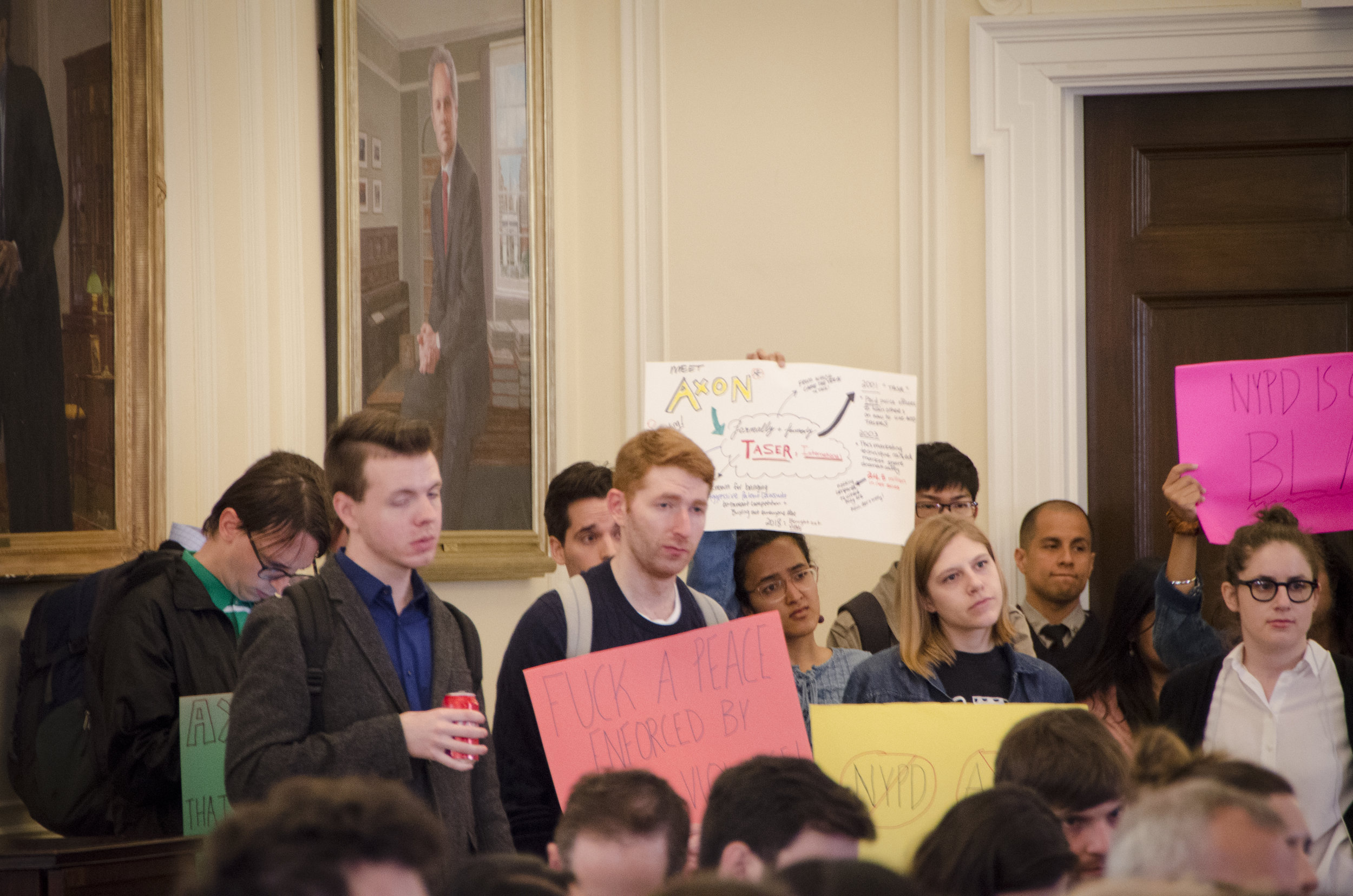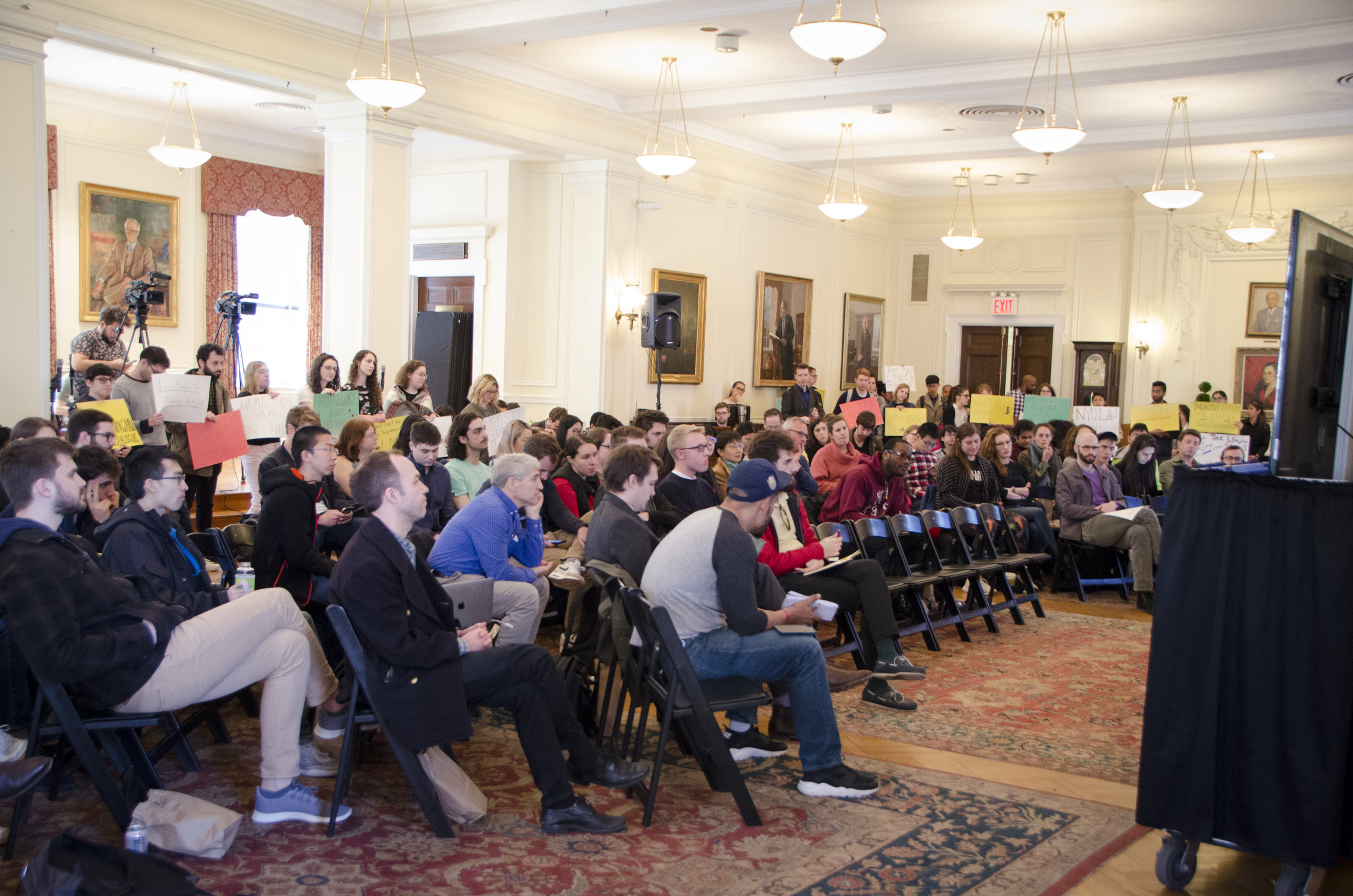Stream the full Latham & Watkins Forum “Beware the Orwellian State: Sound Regulation of Police Surveillance Technology” (Video courtesy of NYU Law)
Earlier this spring, Policing Project Director Barry Friedman moderated a forum at the NYU School of Law as part of the Latham & Watkins Forum Series. The discussion, “Beware the Orwellian State: Sound Regulation of Police Surveillance Technology,” featured
Rashida Richardson, Director of Policy Research at the AI Now Institute at NYU;
Rick Smith, CEO and Founder of Axon Enterprise, manufacturer of TASERs, body cameras, and other policing technologies,
Thomas J Taffe, Deputy Chief of Policy and Programs for the New York Police Department
The wide-ranging discussion touched on whether panelists have a dystopian or utopian view of the future of police surveillance, and the use of new and emerging technologies including face recognition, license plate readers, CCTV, body-worn cameras, location tracking, and predictive analytics.
The panel explored questions such as, what benefits can result from surveillance from a law enforcement and public safety standpoint? What are the social costs of the new technology and are these costs borne unevenly across a city’s population? How transparent have the police been historically around their use of new technologies, and what are ways to solicit public input on technology use policies?
The panelists explored ways to obtain the benefits of new technology while taking account of the concerns, including design steps companies can take, transparency measures police departments should consider, and the role for experts and community members. They further discussed issues of whether and how new technologies have improved policing, how surveillance has and can be used as a form of social control and the implications for privacy and anonymity
Among those in attendance were several NYU Law students who asked questions and vocalized their dissent with practices of both Axon Enterprise and the NYPD. As an educational organization, the Policing Project is grateful to both our panelists and the students for bringing their passion and mutual respect to this event – a fine example of front-end accountability in action.
Key takeaways
"We can't police the 2020s with police officers using technology from the 1970s." –Smith
"We don't live in a perfect or equitable world. So when we talk about pros and cons or cost and benefits, [we must understand] they're not equally distributed throughout society . . . [There are] some communities that are disproportionately affected by the harms, and other communities that are scot-free from that and mostly get the benefits. " - Richardson
“I think we'll be in a good place when it comes to public safety in New York City, and I think technology has a big part to play in that.” - Taffee
“If you feel like you cannot freely flow throughout a city without being viewed, and that you, as a person, are viewed negatively, or seen as a threat, then that can be used against you. It's very hard to have a positive outlook or not see technology as another means of social control moving forward." – Richardson
"It's going to surprise you to hear that I'm an optimist. I think we tend to focus on the work of George Orwell, and not enough on the work of Gene Roddenberry, of Star Trek fame. Technology, because it can be misused, doesn't mean that that is going to be its primary use case. " - Smith
“We actually have [tried] what's known as call response, and get the police officers and social workers together to actually answer calls, and right now, we don't have enough social workers. We have police officers, obviously, but we don't have enough social workers to help us answer the calls, and we're actually …in the process of at least expanding it to one precinct. But there's 77 precincts. This is very hard when it comes to the amount of help that we can get from other agencies, and we have had a lot of different things thrown at the police department to fix …Once again, we're an agency of law enforcement, and we've, because of, I don't know, our span and the amount of people we have, [we] have to take over all of these different roles.” - Taffe



